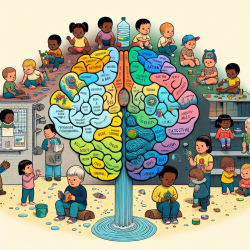The Covid-19 pandemic has been a challenging time for many, bringing about unprecedented levels of social isolation and stress. However, amidst these trials, the bond between humans and their companion dogs has emerged as a beacon of hope and resilience. The research article titled “I Couldn’t Have Asked for a Better Quarantine Partner!”: Experiences with Companion Dogs during Covid-19 provides valuable insights that practitioners can leverage to improve their skills and encourage further research.
The Therapeutic Power of Dogs
The study highlights that having a dog during the pandemic significantly reduced stress levels for many individuals. Dogs provided companionship, diminished feelings of loneliness, and offered a sense of normalcy through routine activities like walking and playing. These findings underscore the therapeutic potential of canine companions, which practitioners can incorporate into their practice.
Key Takeaways for Practitioners:
- Incorporate Animal-Assisted Therapy: Consider integrating animal-assisted therapy into your practice to help clients manage stress and anxiety. The presence of a dog can offer comfort and facilitate emotional expression.
- Promote Routine and Structure: Encourage clients to establish routines with their pets. Regular activities like walking or playing with a dog can provide structure and stability in uncertain times.
- Explore the Human-Animal Bond: Delve deeper into how the human-animal bond can be leveraged to support mental health. This could involve collaborating with animal behaviorists or conducting workshops on pet care as part of therapeutic interventions.
Encouraging Further Research
The study opens up numerous avenues for further exploration. For instance, understanding how different demographics interact with their pets during stressful times could provide insights into tailoring interventions more effectively. Additionally, examining long-term effects of increased human-animal interaction during the pandemic could reveal sustained benefits or challenges.
Research Opportunities:
- Demographic Studies: Investigate how age, gender, or socio-economic status influences the human-dog relationship during crises.
- Longitudinal Impact: Study the long-term effects of increased pet interaction on mental health post-pandemic.
- Cross-Cultural Comparisons: Compare experiences across different cultures to understand universal versus culture-specific benefits of pet companionship.
The insights from this study not only highlight the importance of companion animals in enhancing well-being but also challenge practitioners to think creatively about integrating these findings into their work. By embracing the lessons learned from our canine companions during Covid-19, practitioners can enhance their therapeutic offerings and contribute to a growing body of research on human-animal interactions.
To read the original research paper, please follow this link: “I Couldn’t Have Asked for a Better Quarantine Partner!”: Experiences with Companion Dogs during Covid-19.










